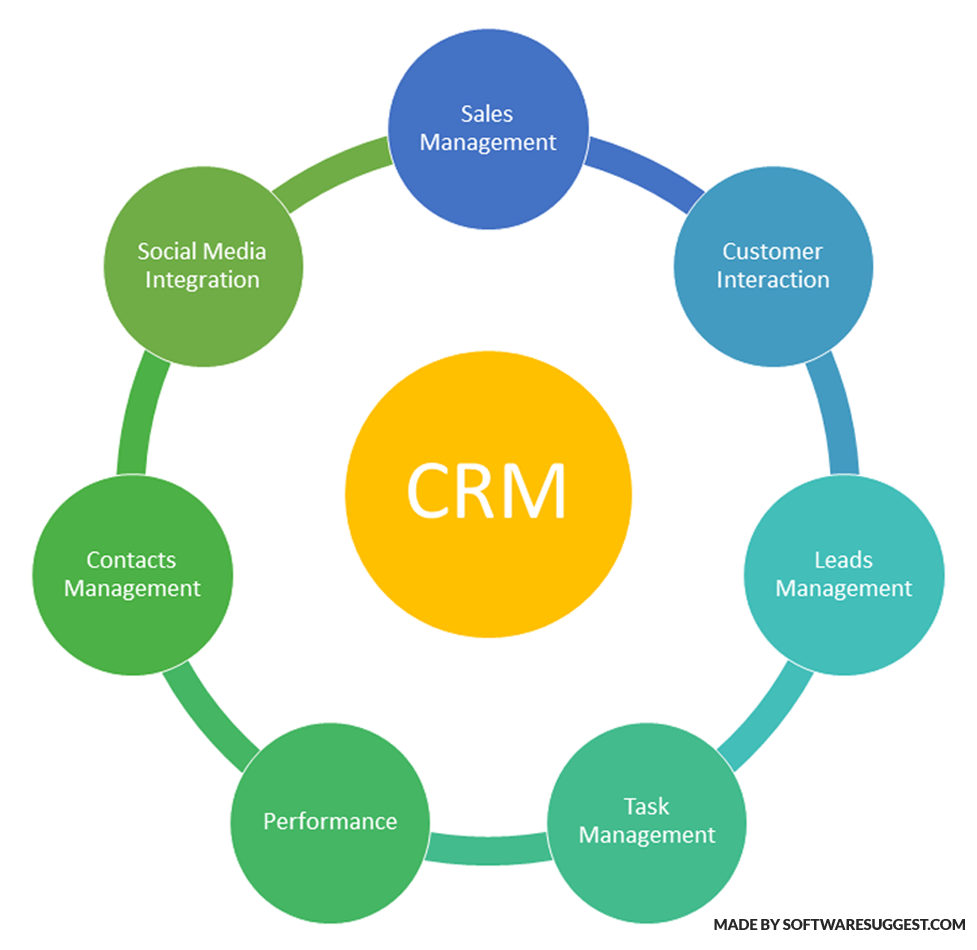In today's fast-paced corporate ecosystem, effective customer client management is fundamental to achieving goals. Businesses regularly looking for ways to enhance their efficiency and enhance their interactions with clients. One of the most effective tools in achieving this objective is a robust customer relationship management system. By leveraging the correct features, companies can simplify their processes, enhance customer satisfaction, and ultimately propel growth.
The key to optimizing the benefits of a CRM lies in grasping its features. From automation tools that reduce manual tasks to data analysis tools that provide deeper insights into customer behavior, the best customer relationship management system can transform how businesses manage their operations. In this write-up, we will examine the top ten CRM features that can significantly enhance your organization productivity and assist you build stronger relationships with your customers. Whether you are a small startup or an well-established enterprise, these features are crucial for remaining competitive in the current market.
First. Streamlined Contact Management
Successful contact management is a key element of any effective customer relationship management system. A structured database allows businesses to easily retrieve and manage customer information, leading to enhanced communication and relationship-building. With improved contact management, users can keep essential details such as customer names, phone numbers, emails, and interaction history in one centralized place. This eliminates the need for fragmented spreadsheets and provides a consistent reference for all customer data.
Advanced CRM systems offer features like labeling and grouping contacts, which make it simpler to categorize customers based on various criteria. This focused approach allows businesses to customize their marketing efforts and communications according to particular customer groups. By leveraging these functionalities, companies can enhance engagement and foster loyalty, as they are able to send personalized messages that resonate with each individual’s needs and preferences.

Furthermore, integrations with various tools and platforms can further enhance contact management. Whether it’s integrating with email marketing software, accounting systems, or even social media, these integrations optimize the workflow and ensure that all customer interactions are recorded and employed effectively. As a result, businesses can make smart decisions and improve their customer strategies, ultimately increasing overall efficiency.
2. Automated Sales Strategies Techniques
Establishing automated sales strategies is vital for enhancing efficiency in business operations. Employing a robust customer relationship management system, sales teams can automate repetitive tasks such as monitoring leads, follow-up actions, and data reporting. This not just save time but guarantees that no sales opportunities are missed, allowing teams to focus on building relationships and finalizing agreements.
An important benefit of automation is the consistency it offers to sales tasks. Automated systems can schedule calls, dispatch emails, and handle follow-up reminders, guaranteeing that customers get prompt communication. This dependability in communication helps in nurturing leads effectively and enhances the probability of turning prospects into repeat customers. Additionally, by streamlining recurring tasks, sales representatives can shift their attention to more strategic activities that have a direct impact on revenue.
Moreover, including data analytics in sales processes delivers crucial insights into performance indicators. Businesses can easily monitor the rate of conversion, spot bottlenecks in the sales funnel, and make informed decisions to refine their strategies. This capability enables teams to adjust swiftly to shifts in the market and client preferences, which further optimizes the efficiency of the business and sales results.
3. Advanced Analytics and Reporting Techniques
Advanced data analysis and reporting techniques are vital customer relationship management features that enable businesses to make informed decisions based on data-informed insights. By harnessing the power of data collection, CRM systems can offer comprehensive information about customer interactions, sales trends, and market dynamics. This enables organizations to comprehend their customers more effectively, anticipate needs, and tailor their strategies to meet those needs.
With robust reporting capabilities, businesses can track key performance indicators and analyze the effectiveness of their marketing efforts. Customizable dashboards and reports allow users to represent data in meaningful ways, making it easier to identify patterns and opportunities for improvement. These insights not only aid in measuring success but also guide future strategies for customer engagement and retention.
In addition, predictive analytics, a subset of sophisticated analytics, enables organizations to forecast future trends and behaviors based on historical data. This forward-looking approach enables businesses to react to but also anticipate customer demands. By leveraging these insights, companies can improve their customer relationship management system aspects, resulting in improved efficiency and eventually, greater revenue growth.
4. Enhanced Customer Engagement
Efficient communication is crucial for building effective relationships with customers, and a robust customer relationship management system features tools that support seamless interaction. With unified messaging systems, emails, and live chat options, businesses can interact with their customers in the moment, addressing inquiries and providing support promptly. This prompt communication helps to foster trust and stimulates customer loyalty.
Moreover, CRM systems often offer capabilities that enable customized communication based on customer data and preferences. By tracking customer interactions and accumulating information about their preferences and behavior, businesses can adjust their messages, ensuring that customers receive relevant offers and information. This personalized approach not only elevates the customer experience but also boosts the likelihood of loyal business.
Moreover, CRM systems can automate communication, allowing businesses to dispatch targeted follow-ups, reminders, and promotional messages without additional labor. This automation ensures that no customer is neglected and that communications are timely and reliable. By enhancing communication processes, businesses can save hours and efficiency while increasing customer satisfaction, ultimately leading to improved business efficiency.
